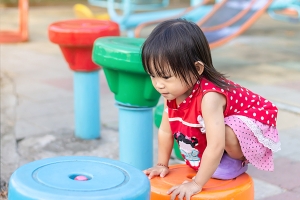
For families who want to be part of the change to end racial inequality, there's never been a better time to create a family action plan. A thoughtful plan, built around empathy and compassion, equips parents and kids of all ages to turn words into action. Here's how to create a plan to help your family become allies for justice and equality.
Embrace the learning curve.
Choosing to learn about the issues of social injustice and racism is one of the biggest first steps parents can make in the direction of positive change. Before getting too far into the issues "out there," it's helpful to start by looking inward--recognizing and examining our own family history. An honest assessment of where we've gotten things right, mistakes we've made or where we lack understanding sets the stage for growth and learning with children.
Understand the challenges.
Before creating a family action plan, it's necessary to understand challenges inherent in social injustice.
Silence
Silence plays two parts in perpetuating racism. First, silent racism (sometimes referred to as covert racism), such as stereotyping and making broad statements and assumptions about a particular heritage or culture, keeps us locked into a harmful system of thought. Second, when we remain silent because talking about racism makes us uncomfortable, we miss opportunities to enter into conversations that lead to change.
Explore the silences in your life. Call out instances of silent racism, such as questions concerning a child's ability to learn or other assumptions based upon race. Talk to kids about how discomfort over a topic is not a reason to ignore it. Teach them that feeling uncomfortable or embarrassed about their lack of knowledge on an issue is a signal to learn more, not an alarm bell to stay silent.
Color blindness
Ignoring or overlooking ethnic differences does not promote racial harmony; it actually does the opposite. "Color blindness" closes our eyes to the experiences of others. If we can't see the differences, we also can't see the problems and challenges they face. Choose instead to build bridges between your family and other cultures by learning more about the richness and depth of the many hues that make up our world.
Implicit bias
We all carry implicit bias. It's a natural and usually unconscious preference for (or aversion to) a particular group of people. We can't change what we're not aware of, so take time to examine and identify blind spots honestly. Notice how children pick up biases through facial expressions and body language. Be mindful of how biases are often subtly depicted in society through what psychologist Derald Wing Sue calls "microaggressions." These are subtle, often nonverbal, slights and insults used to stigmatize people of color.
Michael Genhart’s Ouch! Moments: When Words Are Used in Hurtful Ways is a helpful resource that addresses microaggressions in kid-friendly terms. It also includes a Note to Parents and Caregivers by Kevin L. Nadal, Ph. D, who provides strategies for talking to children about hurtful language, discrimination and bias.
Be a family who advocates for change.
According to Teaching Tolerance magazine, being an ally means recognizing oppression broadly and standing in solidarity with anyone who experiences oppression. Activist and educator, Dr. Joy DeGruy adds, "To be anti-racist is to be an ally who uses their privilege and power to positively impact marginalized groups."
Standing in solidarity against oppression and positively impacting marginalized groups sound like lofty concepts. But there are ways to teach kids to become allies by creating a family action plan that instills compassion, empathy and activism.
For parents concerned that this topic isn't appropriate for young children, Poway mom, Melanie Wilform, encourages families to be honest with kids in terms they can understand. Wilform, who is white, has two biracial sons, ages 4 and 2. "I think we underestimate kids’ ability to understand," she says. "My husband and I believe that if my kids have to learn at age 4 or 5 that there will be people who don't like them because of their skin color, or [have to learn] how they should behave around the police, then other 4- and 5-year-olds can understand a conversation about race."
Meet kids where they are.
Preschoolers have an unquenchable curiosity that often causes them to ask loud and embarrassing questions. Be willing to discuss differences, while also pointing out similarities. Help elementary-age children develop an appreciation for different cultures and praise choices that demonstrate respect and empathy for others. Expand conversations with teens to include issues from the news and ask questions that encourage thought and research. Model how to listen to differing opinions and resist the urge to tell them what to think.
Put your family plan into action.
Moving from words to action doesn't have to be a monumental undertaking. Black humanitarian and tennis legend, Arthur Ashe, said, "Start where you are. Use what you have. Do what you can." Excellent advice for families ready to begin making a difference.
Think of ways to use the gifts and talents each family member has to connect and serve with others.
- Bake goodies and take them to neighbors who come from a different culture.
- Have children write letters or stories about the change they hope for; then send them to friends, family members and lawmakers.
- Take children along when sharing food from your garden with local families.
- Listen carefully to stories and experiences of people who look different from your family.
- Interact with other cultures through community events, food and entertainment.
- Choose books and movies featuring different ethnicities and stories that reach beyond social justice issues.
- Help kids develop an appreciation for the richness and beauty contained in world art and literature.
Identify your family's circle of influence and invite friends, family members, classmates, and teammates to join you in listening, learning, and serving.
Ending racism is not just a problem for people of color. It's a problem for everyone, and all of us can enter the fight to end social injustice with a family action plan for change.
–––––––––––
Jody Lee Cates is a local mom with an award-winning column called Parenting with Purpose. She also blogs about healthy relationships at www.jodyleecates.com
Missed Jody's first article about this topic? Read it here: How to Raise Kids to Be Allies.

This article won an award from San Diego Press Club! Jody Lee Cates received Second Place in the Feature: Serious Subject category. See all of San Diego Family's awards HERE.
–––––––––––















